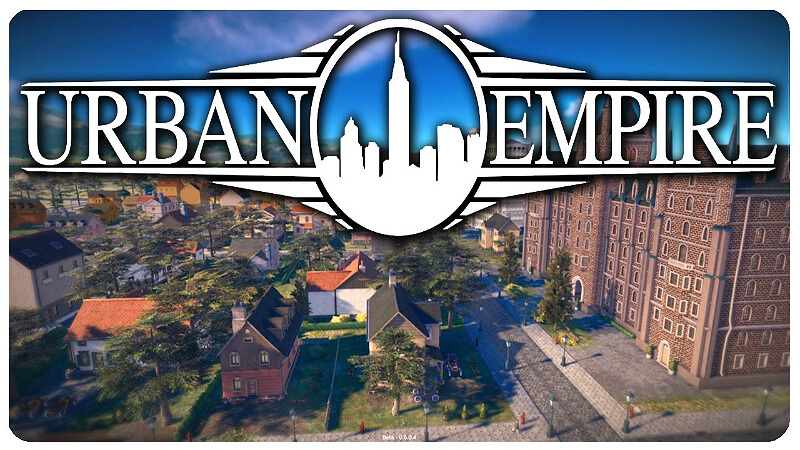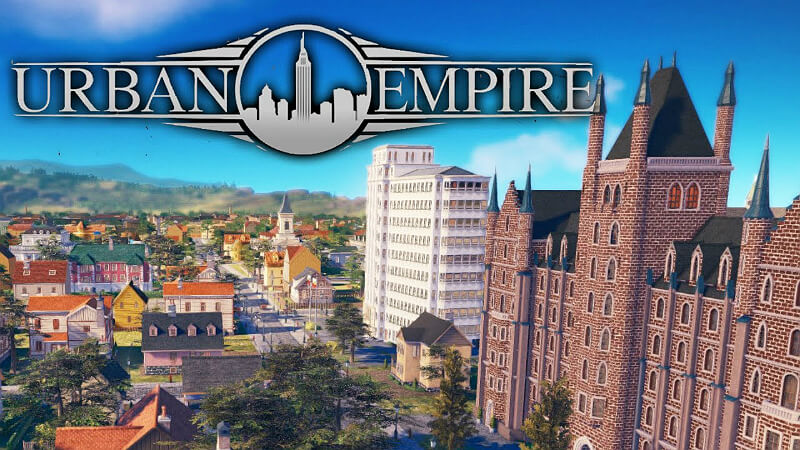Urban Empire


Game information:
- Date Release: 2017
- Genre: Simulators, Strategy
- Developer: Reborn Games
Game description


Urban Empire is a new simulator of city building, where you can build a career from beginning to end, overcoming many difficulties and obstacles. You have the time to lead an entire dynasty of mayors, which lasted for two hundred years.
Create your own infrastructure of the city and then do everything possible for its prosperity and development. All actions in the game will take you to the distant past, namely in 1830, where you start to create your own story. There are five various epochs waiting for you, each of which will differ in the development both in their external characteristics and technologies.
Each era will require a special relationship from you and there are specific problems to each of them. To solve these problems, you will have to be able to include logical thinking, dexterity, and ingenuity. It is necessary to act very quickly, but first, try to come up with a winning tactic to develop their state for several eras.
Walkthrough and Gameplay
The game begins in 1820 in the fictional city of Swarelian. One of the four families with offspring span over a couple of centuries ahead can take responsibility for the arrangement of the city. The choice affects the initial development strategy of the region in three areas: technology, economics, and civil rights. Achieving success in each direction is difficult even in the final stages, when humanity reaches the peak of evolution, and even more so in the early XIX century when it is almost impossible.
Initially, it is necessary to put in order the territory where there are horses instead of cars, no roads, and a lot of dirt. At first, it is necessary to delimitate the residential and industrial zones (later, commercial ones will be needed). Further, with the growth of the population and its skills, the responsibility for infrastructure management will pass to the municipalities. The mayor will have the right to adjust the projects and monitor the execution of orders.
We see the political element of the game almost immediately. Even in the early era, there is a collective Council that addresses important issues — from the construction of temples to the revision of the tax system. The legislature consists of representatives of three parties (liberals, conservatives, and nationalists), each following a particular ideology. You are in the middle, trying to be the mayor fulfilling the will of the people.
Closer to the present, more effort goes to the multi-party struggle and not to improve the Swarelian. In the last stages, the Senate has six or seven parties, which means that it is more difficult to promote their proposals. Even minor good deeds like installing a fountain or building a park may not get the approval of the conservatives and nationalists, although the small parties will support you.
Conclusion
Urban Empire will be a real test. In this game, it is assumed that you are already perfectly acquainted with Tropico, Patrician, and other economic strategies. The introduction shows some basics and features of the interface. Will you be able to understand that none of your decisions as mayor are taken by parties only because of the proletarian origin of the family? Figure out whether there is a need to avoid certain areas of school impact when there is high demand for unskilled labor.
The game has a detailed data collection system, but it is presented in a confusing way — you will never know the reasons why a particular store went bankrupt. Data on prospects of personal growth of students are registered, but there is no summary on losses of areas. There are metros, buses, and trams implemented but they only affect the parameter of the capacity of roads and their purpose is more decorative.
Before the release, we were shown wonderful landscapes with sunsets and long shadows on the mountain ranges. Urban Empire can look beautiful. However, the optimization was so bad that the developers had to introduce the “jumping LoD” and give up the lifting of the camera. As a result, the viewing angle is limited to the classic isometric view, and the details of 3D models suddenly disappear when the camera moves along with residents and cars.
While the players of Cities: Skylines build giant cities and shoot videos with beautiful detail and realism, Urban Empire tried to offer them to learn the political debate and intrigue. As a result, the scenarios turned out to be boring and the story, quite simple.
Pros: an attempt to create a familiar genre in a new style; worked out the relationship between the mayor and the parties with the accompanying intrigues and conflicts; a delicate approach to the historical realities and laws of the last two centuries; the opportunity to develop a settlement from the state of village to a futuristic metropolis during five generations of the ruling family.
Cons: lack of adequate assistance – most of the conventions are designed exclusively for players familiar with the genre; sometimes the balance is broken, which spoils the tactical struggle; there is no possibility to regain the post of mayor after losing it; a relatively low level of graphics with high technical requirements; linear scenarios and the lack of free mode.
System requirements
- OS: Windows 7, 8, 10
- Processor: Intel i5-2400
- RAM: 6 GB
- Video card: GTX 560
- Soundcard: DirectX 11
- Free hard disk space: 4 GB
Trailer – Urban Empire:
Recent Posts
Most Powerful Legends in Apex Legends
Apex Legends is a character-based battle royale. Apex Legends became popular because it was a…
My “Easy” Flukemarm Setup – Hollow Knight
I'm not especially good at games due to mediocre reflexes and I was having a…
Progression Guide – Hollow Knight
A short progression guide with movement ability locations. Minor spoilers. It can be hard to…
Order of Locations for Traveling NPCs – Hollow Knight
Has anyone figured out the order of locations that NPCs show up at if you…
The Grub Ending (Opinion) – Hollow Knight
I honestly feel that that the ending for collecting all the grubs is an awful…
How Beat the Watcher Knights? – Hollow Knight
Two at a time, and can go so unsynced that they just deal unavoidable damage…



